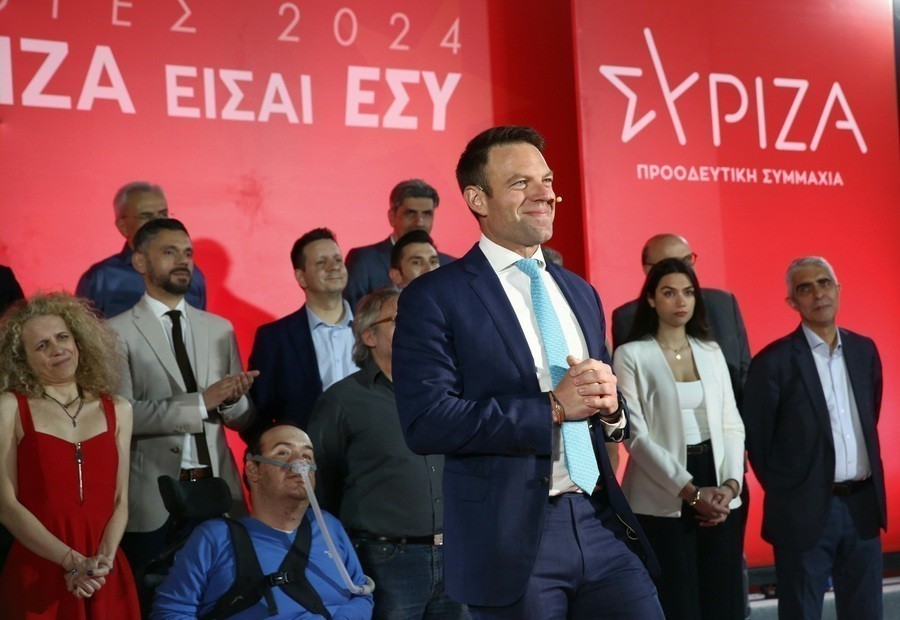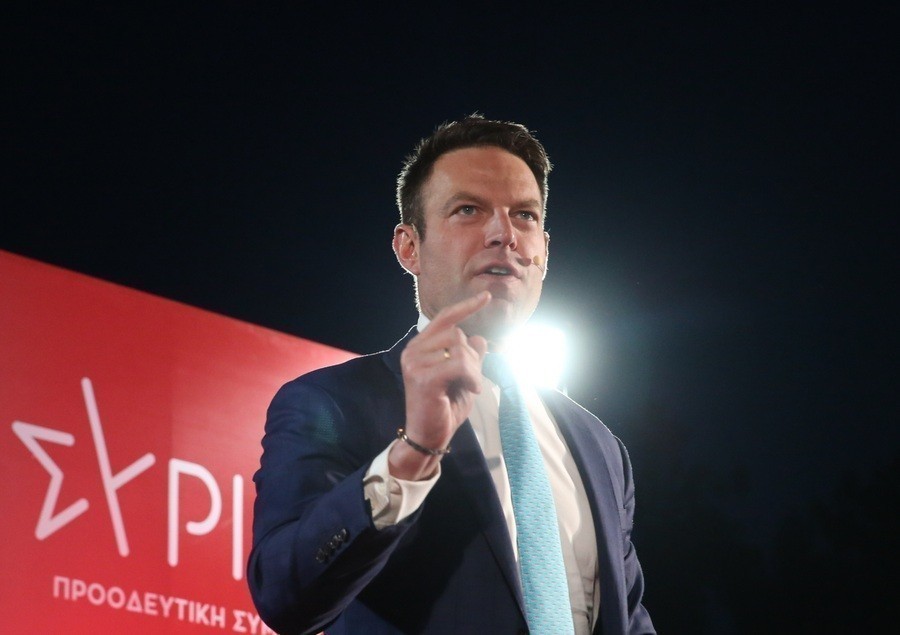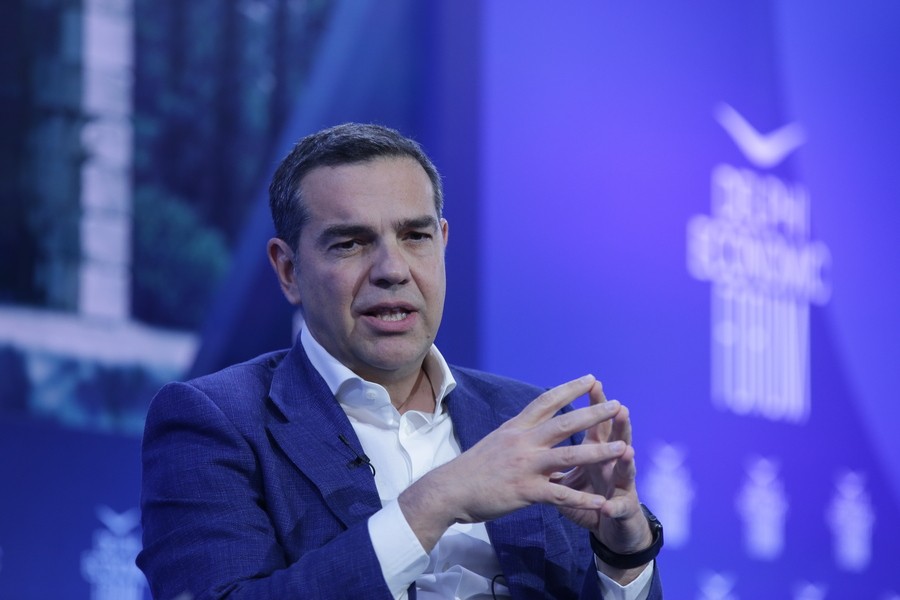
Prime Minister Alexis Tsipras: Greece has made it; three years later it is a different country
“Greece has made it. Three years later, it is part of the solution and not the problem. This is a success of the Greek people,” Prime Minister Alexis Tsipras said on Tuesday addressing the Europarliament plenary.
“The policy of deficits, the wasting of public money, and the widespread corruption of previous governments had thrown the country onto the ‘rocks’ of bankruptcy. But at the same time the institutions’ inability to prioritise the necessary structural reforms in the first two programmes, coupled with the insistence of some among them upon a recipe of extreme fiscal adjustment, led the country to the brink of a social explosion and economic suffocation,” Tsipras said.
“From 2010 to 2014, Greece lost 1/4 of its national wealth,” Tsipras explained and noted that “unemployment, poverty and social exclusion rose, along with the public debt.”
He added that foreign investments had vanished, young scientists left the country in their thousands. The economic crisis in Greece and the failure to manage it had turned into a political crisis in Europe. And at that time, some of you supported me, others disapproved of me, but few, very few among you believed that I had any chance of succeeding.”
The prime minister stressed that Greece has made it and is now a different country. Three years later, it is part of the solution and not the problem. And the clean exit from the three-year programme is mainly a success of the Greek people. But also a success for Europe, which proved that it can overcome crises with a spirit of solidarity and cooperation. “Today we stand on our feet once more and look towards the future with optimism,” he stressed.
Moreover, he said: “We have rationalised our public finances, proceeded with deep cuts and reforms that should have been made decades ago, we escaped the spiral of recession and brought the economy back on track. We proceeded with projects and investments that make Greece a commercial transit and energy hub for the wider region. But, at the same time, we have proven that there is the way out of the crisis without tattering the social fabric.”
Regarding social policy, Tsipras stressed that most of the weakest members of society were supported and the humanitarian crisis had stopped. “We gave access to the health system to millions of uninsured people, but at the same time we achieved primary surpluses that no one could believed possible three years ago.”
We are determined not to repeat the mistakes and behaviour that led to the crisis
“Greece’s exit from the last fiscal adjustment programme does not mean a return to the past. We are determined not to repeat the mistakes and behaviour that led to the crisis,” Prime Minister Alexis Tsipras said on Tuesday addressing the European Parliament plenary.
He underlined that it is “a new start that consolidates stability and security, heals wounds, gradually rectifies injustices and opens up new growth prospects for our people and our country.”
“In the coming period, we will continue the agreed reforms, emphasising the further rationalisation of state functioning, the modernisation of public administration, the fight against bureaucracy and the deepening of democratic sectors through the forthcoming constitutional revision,” the prime minister reiterated.
“We will continue a balanced fiscal course, while at the same time we will prioritise equitable growth and protection of labour,” Tsipras said, stressing: “Greece and the Greeks have proved in recent years how deeply committed they are to the idea European integration.”
“In a Europe where racism and xenophobia are rampant, Greece has done its best to tackle racism. Although financially crushed, it gave lessons in humanity and resisted the sirens of hate,” he said.
Regarding Greek society’s faith in the European edifice, Tsipras noted that Greeks had show patience and persisted with “the European course of the country, even though Europe itself, or perhaps its dominant expression, has hurt and underestimated the Greek people. Let’s try, therefore, from this eight-year Greek crisis that we are leaving behind us, to draw our conclusions,” the prime minister underlined.
“It is now time to reach conclusions about the kind of Europe we want,” he said, adding that this meant decisions “on how to shield it against possible new crises in the future. The stakes for Europe today are of an existential nature. The management of the economic crisis, the refugee crisis and the security crisis has so far revealed huge shortcomings and contradictions,” he said.
Regarding Turkey, he said that Greece has kept the channels of communication open “despite the problems of instability and nationalist upheaval” in that country, preserving peace in the Aegean, promoting cooperative solutions on the refugee issue, while insisting on a just and viable solution to the Cyprus issue, noted the prime minister.
“In the destabilised area of the Eastern Mediterranean, we are, together with Cyprus, the only European pillar of stability. We are expanding our multilateral partnerships with Egypt, Israel, Palestine, Jordan. At the same time, we are deepening Balkan co-operation and co-development, with Thessaloniki as our point of reference,” he said.
My government succeeded where three governments failed
“The crisis started in 2010, the adjustment programmes began in 2010,” Prime Minister Alexis Tsipras said on Tuesday addressing the European Parliament plenary.
“My government succeeded where three governments failed from 2010 to 2015 and that alone was an excellent political success,” he added.
Tsipras also said that the government managed to deepen structural reforms and at the same time protect a large social majority.
He referred to the fact that in 2015, when he was elected, the country was experiencing a major humanitarian crisis with 2,5 million uninsured people in a country of approximately 11 million, who had no access to the public health system.
The migrants and refugees are people, not numbers and statistics
Referring to the refugee issue, Tsipras noted that despite the standing differences between the political forces, the most important issue for Europe was to understand that the “snake’s egg is hatching”.
He said he was happy with what his government had achieved on mainland Greece while acknowledging that conditions on the Greek islands remained extremely difficult and this situation did not do anyone any credit. “However, we are obliged to support an agreement that, had it not existed, would make things far more difficult,” he added, and reiterated that Greece needs support.
“When we speak of migrants and refugees we need to know that we are referring to people, not just numbers and statistics, but to see the faces of these people that have names,” said Tsipras.
Replying to criticism from Greek MEPs about the Prespes Agreement during the debate in the European Parliament, Tsipras noted that the name issue was a taboo in Greece, which appeared to be living in a different reality to the 140 countries throughout the world, among them the most powerful, that had recognised the neigbouring country with its constitutional name.
“Maybe the most important thing is that any prime minister of the neighbouring country will, from now on, confirm the clearly Slavic descent of the people and the language,” said Tsipras.
“Both Zoran Zaev and I are the targets of strong attacks in our countries, we are both acussed as traitors. The leaders of the political groups affiliated to the EPP raise exactly the same argument, that we are traitors and brought a harmful agreement,” noted Tsipras, addressing the Europarliament plenum.
“Probably we, Zoran Zaev and I, have done something good for our people, we are probabling opening a way to peace, the prospect for cooperation and co-existence of our people, a way that will make history,” added Tsipras.
Source: ANA-MPA

